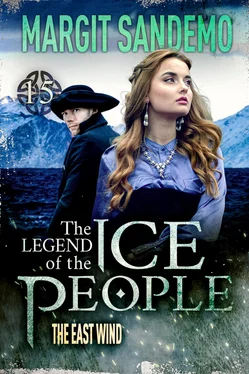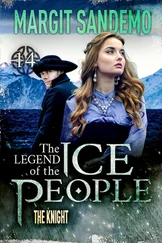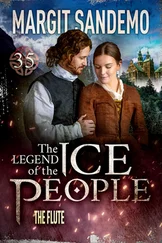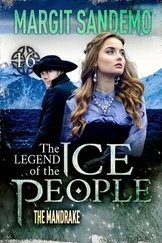The fisher boy ...
The Tobol ran east until it joined the main River Irtysh, which flowed in a northwesterly direction.
Westwards? Wasn’t that the direction he longed to go in?
Towards freedom?
The fisher boy looked terribly poor. And it was suddenly as though Vendel was exploding with energy. He hurried along the short cut that led to his house and collected all the money he had been saving. He had also managed to acquire a pair of boots and he took those too, as well as food and all the hides he had been working on plus his other belongings. Even though he rolled it all into a tight bundle, it was still a formless bulk that he could hardly carry under his arm. Then he calmly walked back down to the river. No one could see just how hard his heart was pounding.
From a distance he could see the young fisherman tossing his net angrily into the boat. He gathered up the rest of his fishing tackle and started walking up the riverbank, up towards Vendel. Perfect, thought Vendel as he waited for him in the shelter of the houses. When the boy reached the spot where he was standing, he stepped out of the shadows.
Vendel’s Russian was now good, so it was no problem for him to make himself understood by the young fisherman. He asked whether it was possible to purchase the boat, and if so, if he could do so right there and then.
The fisherman’s gaze was uncertain. He knew perfectly well what kind of man he had encountered, and it was forbidden for Russians to befriend those ungodly Protestants.
But Vendel discreetly pulled out a handful of roubles and kopecks that he had ready in his pocket. It was half of his hard-earned savings of coins. Initially he had been saving up to make an escape, later it was to marry Maria, and now he was using it for his original intention. He thanked his lucky stars that he had made sure to save so much.
The fisher boy’s eyes grew huge. There was perhaps the value of a whole year’s catch in the Swede’s hand. For that amount he could buy a new and better boat and still have enough to live comfortably for a good long time. Vodka ... girls ...
He bit his lip and looked around, and then he gave a decisive nod.
Vendel, who had been fidgeting with impatience and the fear of being discovered, let out a sigh of relief. “But quickly,” he said in a low voice. “And you’ve never seen me. The boat was just stolen. Understand?”
The boy nodded. On the other side of the river some women were busy carrying the day’s laundry up from the shore. Away in the distance he could see some other fishermen at their boats. And high on the slope was where the guards stood. “I just hope to God I make it past them,” Vendel thought.
He asked for some of the boy’s outer garments, since they were the kind Russian fishermen wore, and he also asked for his broad-brimmed cap, which gave some protection from the sun. The young man gladly agreed to the exchange because he was gaining the most from it. Vendel had become something of an aesthete. He had embroidered delicate patterns on his modest shirts and taken good care of his other clothes, as best he could in his impoverished circumstances. The clothes he was now getting in return would probably give him lice all over again. But it was a small price to pay for one’s freedom.
When they had exchanged their outer garments Vendel walked calmly down to the boat. He had tucked his hair under the cap and he tried to look as small as possible. The fisher boy had had a distinctive way of walking – he sauntered and was bow-legged. Vendel imitated him as best he could.
He took plenty of time arranging the fishing tackle in the boat; he pulled the net back up and worked on it a little. In the meantime he discovered that the boat wasn’t the best in the world, considering all the money he had paid for it, but there was nothing he could do about that. It was his route to freedom and he intended to use it!
He poled away from the shore like a natural fisherman as his blood thundered in his ears. Not once did he dare glance up at the guards on the slope.
As soon as he reached the current he felt the tug from the bigger River Irtysh. He sat down and grabbed hold of the clumsy oars, but mostly he just drifted with the tide.
There were several barges on the river, but most of the crews on board seemed to be completely engrossed in watching the fire. Fishing boats sailed in and out. Vendel turned his head away every time he passed them because the fishermen most probably knew the boat’s previous owner.
After he had passed the rather turbulent water where the two rivers joined, the current seemed to calm down. Since he was sitting backwards in the boat, he could see the town at all times and, more importantly, the guards. They hadn’t budged at all, just cast indifferent glances in his direction.
Vendel was just about to heave a sigh of relief when he caught a glimpse of something unexpected on the shore to his left. He didn’t dare look in that direction but from the corner of his eye he could tell that it was another watchtower. Naively, he hadn’t taken that possibility into account.
Slowly and meditatively he rowed with long strokes. He took his time looking at the banks, trying to find a good spot to cast the net. Closer to the town there was another fisherman who sat singing in his boat and he could hear a second one farther down the river.
Did he dare? Vendel liked Russian folk songs and he had learned many. He had also learned the unique Russian technique of pressing your vocal cords together.
But now it was a matter of life and death. At any moment the guards might summon him over so that they could get a better look at him and see whether he really was a fisherman.
Vendel sang with the courage of despair and his song was heartfelt and beautiful, matching his state of mind.
It is not the wind that bends the branches of the trees
not the puffin singing,
It is my heart that sighs and laments
like trembling autumn leaves.
Whether or not it was convincing, the guards let him row past them all the same. Maybe it was the calm, assured ease with which he sang that convinced them. Many of the local fishermen had a relaxed attitude to life and Vendel had often watched them at work on the river. He was now grateful for having done that.
The watchtower slowly glided out of his range of vision. The city of Tobolsk disappeared. The river grew wider. On both sides the taiga thinned out a little, and much of the landscape was steppe.
The fishing boats grew scarcer, as did the farms and the houses. The sun was way down on the horizon and would soon disappear, but Vendel had no intention of leaving the river on that account. Night-time was his friend and now the Irtysh was his mother, rocking him to freedom. He knew it was navigable all the way to a place called Samarovo. After that he’d have to see.
Until now the current had been carrying him westward, he could tell by the position of the sun. Or, to be more accurate, northwest.
Twilight came, early summer twilight, bewitching and light. Light veils of mist gathered about the scattered coniferous trees of the taiga forest. There was no sign of human life anywhere. Vendel was alone, terribly alone.
He was free! That knowledge suddenly rushed through him like thunderous applause. His painful thoughts of Maria and his sense of great shame had disappeared, as had his feelings of anxiety, insecurity and despondency.
Even though he didn’t really dare, he burst out singing an exuberant song about escape, “Holy Baikal”, which would have had him taken prisoner again on the spot had anyone heard him:
Hello east wind, stir up the waves!
Help the fugitive get farther away!
Even though the song was about the River Barguzin, which joined Lake Baikal from the east, it didn’t matter to Vendel. He felt as though the wind from the east was helping him home. He had left the city of Tobolsk and he was never going to see it again!
Читать дальше












